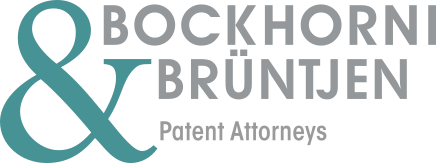In its decisions known as ÖKOTEST I and ÖKOTEST II (Ref.: I ZR 173/16, I ZR 174/16, I ZR 117/17), the German Federal Supreme Court of Justice (BGH) found that use of the well-known ÖKO-TEST seal without a proper license agreement with the trademark owner constitutes a trademark infringement.
The plaintiff has been the publisher of the magazine ÖKO-Test since 1985, in which it publishes its tests on goods and services. Since 2012, it has had a Union trademark which reproduces the ÖKO-TEST seal and is registered for “consumer advice and consumer information in the selection of goods and services”. The plaintiff allows manufacturers and service providers to use the ÖKO-TEST seal under the condition of a license agreement against payment.
The defendants in the proceedings in question were mail order companies and had advertised in their shops with the ÖKO-TEST seal, referring partly to the specifically tested products and partly to variations of these (e.g. in size, color). In the respective offers, the ÖKO-TEST seal was displayed with the name of the tested product, the respective test result and the place where the test was published.
The plaintiff considered this to be an infringement of its Union trademark rights and claimed for injunction and reimbursement of the warning costs from the defendants. In the end, the plaintiff was successful in all three proceedings in the second instance. The BGH largely confirmed these decisions and dismissed the appeals in each case by declaring in each case the objectionable use of the ÖKO-TEST seal as an infringement of the plaintiff’s rights under Art. 9 (1) sentence 1 and 2 letter (c) GMV (CTMR, Community Trademark Regulation) and Art. 9 (1) and (2) (c) UMV (Union Trademark Regulation).
Under these provisions, the trademark proprietor is entitled to prohibit third parties from using, in the course of trade and without his consent a sign which is identical with or similar to his Union trademark in relation to goods and services. This prohibitive right exists irrespective of whether the challenged sign is used for goods or services that are identical with, or similar to, the goods and services covered by the Union trademark. The decisive point is that the Union trademark is well-known in the Union and that the use of the sign without due cause takes unfair advantage of or is detrimental to the distinctive character or the reputation of the Union trademark.
The trademark has acquired a relevant reputation through the publication of the test results in connection with the ÖKO-TEST seal, a direct investment in the trademark itself is not necessary.
The BGH further affirmed the infringing use of the trademark: It assumed similarity of the signs, but not identity of the signs, as the protected “empty” test logo was supplemented by the details of the test object, the test result and the publication reference. It further stated that the services of consumer advice and information claimed by the trademark were dissimi-
lar to the respective commercial products of the defendant. However, in the overall assessment to be carried out in this context, the reputation of the mark and the high degree of similarity of the signs are such that, despite the difference of the goods/services concerned, a mental association of the logo as used by the defendants and the plaintiff’s mark was to be assumed.
Finally, the challenged use of the respective sign would also have taken unfair advantage of the reputation of the plaintiff’s mark without due cause: The plaintiff had put considerable economic efforts into creating and maintaining the reputation of its trademark, whereas the defendant had taken advantage of the mark’s attractiveness and reputation without paying any economic compensation. Accordingly, the plaintiff’s interest in controlling the advertising of others using its ÖKO-TEST seal with regard to its test-related standards had to be considered greater than that of the defendant in advertising its products using the plaintiff’s test results.
German Federal Supreme Court of Justice
Case numbers: I ZR 173/16, I ZR 174/16, I ZR 117/17
June 18, 2020
Sabine Röhler
Attorney at Law
